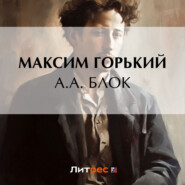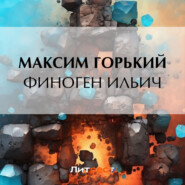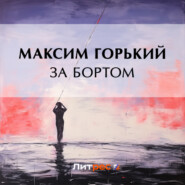По всем вопросам обращайтесь на: info@litportal.ru
(©) 2003-2025.
✖
Through Russia
Настройки чтения
Размер шрифта
Высота строк
Поля
"And the first man who repented of a sin?"
"Adam."
"Ah! You see!"
Here there broke into the dispute a shout of: "They are just getting him aboard!" and the crowd, rushing away from the stern, carried with it the two disputants – the sparer peasant; lowering his shoulders, and buttoning up his jacket as he went; while the bearded peasant, following at his heels, thrust his head forward in a surly manner as he shifted his cap from the one ear to the other.
With a ponderous beating of paddles against the current the steamer heaved to, and the captain shouted through a speaking-trumpet, with a view to preventing a collision between the barge and the stem of the vessel:
"Put her over! Put her o-o-ove-r!"
Soon the fishing-boat came alongside, and the half-drowned man, with a form as limp as a half-empty sack, and water exuding from every stitch, and his hitherto haggard face grown smooth and simple-looking, was hoisted on board.
Next, on the sailors laying him upon the hatchway of the baggage hold, he sat up, leaned forward, smoothed his wet hair with the palms of his hands, and asked dully, without looking at anyone:
"Have they also recovered my cap?"
Someone among the throng around him exclaimed reprovingly:
"It is not about your cap that you ought to be thinking, but about your soul."
Upon this he hiccuped loudly and freely, like a camel, and emitted a stream of turgid water from his mouth. Then, looking at the crowd with lack-lustre eyes, he said in an apathetic tone:
"Let me be taken elsewhere."
In answer, the boatswain sternly bade him stretch himself out, and this the young fellow did, with his hands clasped under his head, and his eyes closed, while the boatswain added brusquely to the onlookers:
"Move away, move away, good people. What is there to stare at? This is not a show… Hi, you muzhik! Why did you play us such a trick, damn you?"
The crowd however, was not to be suppressed, but indulged in comments.
"He murdered his father, didn't he?"
"What? THAT wretched creature?"
As for the boatswain, he squatted upon his heels, and proceeded to subject the rescued man to a course of strict interrogation.
"What is the destination marked on your ticket?"
"Perm."
"Then you ought to leave the boat at Kazan. And what is your name?"
"Yakov."
"And your surname?"
"Bashkin – though we are known also as the Bukolov family."
"Your family has a DOUBLE surname, then?"
With the full power of his trumpet-like lungs the bearded peasant (evidently he had lost his temper) broke in:
"Though his uncle and his brother have been sentenced to penal servitude and are travelling together on that barge, he – well, he has received his discharge! That is only a personal matter, however. In spite of what judges may say, one ought never to kill, since conscience cannot bear the thought of blood. Even nearly to become a murderer is wrong."
By this time more and more passengers had collected as they awakened from sleep and emerged from the first- and second-class cabins. Among them was the mate, a man with a black moustache and rubicund features who inquired of someone amid the confusion: "You are not a doctor, I suppose?" and received the astonished, high-pitched reply: "No, sir, nor ever have been one."
To this someone added with a drawl:
"Why is a doctor needed? Surely the man is a fellow of no particular importance?"
Over the river the radiance of the summer daylight had gathered increased strength, and, since the date was a Sunday, bells were sounding seductively from a hill, and a couple of women in gala apparel who were following the margin of the river waved handkerchiefs towards the steamer, and shouted some greeting.
Meanwhile the young fellow lay motionless, with his eyes closed. Divested of his pea-jacket, and wrapped about with wet, clinging underclothing, he looked more symmetrical than previously – his chest seemed better developed, his body plumper, and his face more rotund and less ugly.
Yet though the passengers gazed at him with compassion or distaste or severity or fear, as the case might be, all did so without ceremony, as though he had not been a living man at all.
For instance, a gaunt gentleman in a grey frock-coat said to a lady in a yellow straw hat adorned with a pink ribbon:
"At our place, in Riazan, when a certain master-watchmaker went and hanged himself to a ventilator, he first of all stopped every watch and clock in his shop. Now, the question is, why did he stop them?"
"An abnormal case indeed!"
On the other hand, a dark-browed woman who had her hands hidden beneath her shawl stood gazing at the rescued man in silence, and with her side turned towards him. As she did so tears were welling in her grey-blue eyes.
Presently two sailors appeared. One of them bent over the young fellow, touched him on the shoulder, and said:
"Hi! You are to get up."
Whereupon the young fellow rose, and was removed elsewhither.
When, after an interval, he reappeared on deck, he was clean and dry, and clad in a cook's white jumper and a sailor's blue serge trousers. Clasping his hands behind his back, hunching his shoulders, and bending his head forward, he walked swiftly to the stern, with a throng of idlers – at first one by one, and then in parties of from three to a dozen – following in his wake.
The man seated himself upon a coil of rope, and, craning his neck in wolf-like fashion to eye the bystanders, frowned, let fall his temples upon hands thrust into his flaxen hair, and fixed his gaze upon the barge.
Standing or sitting about in the hot sunshine, people stared at him without stint. Evidently they would have liked, but did not dare, to engage him in conversation. Presently the big peasant also arrived on the scene, and, after glancing at all present, took off his hat, and wiped his perspiring face. Next, a grey-headed old man with a red nose, a thin wisp of beard, and watery eyes cleared his throat, and in honeyed tones took the initiative.
"Would you mind telling us how it all happened?" he began.
"Why should I do so?" retorted the young fellow without moving.
Taking a red handkerchief from his bosom, the old man shook it out and applied it cautiously to his eyes. Then he said through its folds in the quiet accents of a man who is determined to persevere:
"Why, you say? For the reason that the occasion is one when all ought to know the tru – "
Lurching forward, the bearded peasant interposed with a rasp:
"Yes, do you tell us all about it, and things will become easier for you. For a sin always needs to be made known."
"Adam."
"Ah! You see!"
Here there broke into the dispute a shout of: "They are just getting him aboard!" and the crowd, rushing away from the stern, carried with it the two disputants – the sparer peasant; lowering his shoulders, and buttoning up his jacket as he went; while the bearded peasant, following at his heels, thrust his head forward in a surly manner as he shifted his cap from the one ear to the other.
With a ponderous beating of paddles against the current the steamer heaved to, and the captain shouted through a speaking-trumpet, with a view to preventing a collision between the barge and the stem of the vessel:
"Put her over! Put her o-o-ove-r!"
Soon the fishing-boat came alongside, and the half-drowned man, with a form as limp as a half-empty sack, and water exuding from every stitch, and his hitherto haggard face grown smooth and simple-looking, was hoisted on board.
Next, on the sailors laying him upon the hatchway of the baggage hold, he sat up, leaned forward, smoothed his wet hair with the palms of his hands, and asked dully, without looking at anyone:
"Have they also recovered my cap?"
Someone among the throng around him exclaimed reprovingly:
"It is not about your cap that you ought to be thinking, but about your soul."
Upon this he hiccuped loudly and freely, like a camel, and emitted a stream of turgid water from his mouth. Then, looking at the crowd with lack-lustre eyes, he said in an apathetic tone:
"Let me be taken elsewhere."
In answer, the boatswain sternly bade him stretch himself out, and this the young fellow did, with his hands clasped under his head, and his eyes closed, while the boatswain added brusquely to the onlookers:
"Move away, move away, good people. What is there to stare at? This is not a show… Hi, you muzhik! Why did you play us such a trick, damn you?"
The crowd however, was not to be suppressed, but indulged in comments.
"He murdered his father, didn't he?"
"What? THAT wretched creature?"
As for the boatswain, he squatted upon his heels, and proceeded to subject the rescued man to a course of strict interrogation.
"What is the destination marked on your ticket?"
"Perm."
"Then you ought to leave the boat at Kazan. And what is your name?"
"Yakov."
"And your surname?"
"Bashkin – though we are known also as the Bukolov family."
"Your family has a DOUBLE surname, then?"
With the full power of his trumpet-like lungs the bearded peasant (evidently he had lost his temper) broke in:
"Though his uncle and his brother have been sentenced to penal servitude and are travelling together on that barge, he – well, he has received his discharge! That is only a personal matter, however. In spite of what judges may say, one ought never to kill, since conscience cannot bear the thought of blood. Even nearly to become a murderer is wrong."
By this time more and more passengers had collected as they awakened from sleep and emerged from the first- and second-class cabins. Among them was the mate, a man with a black moustache and rubicund features who inquired of someone amid the confusion: "You are not a doctor, I suppose?" and received the astonished, high-pitched reply: "No, sir, nor ever have been one."
To this someone added with a drawl:
"Why is a doctor needed? Surely the man is a fellow of no particular importance?"
Over the river the radiance of the summer daylight had gathered increased strength, and, since the date was a Sunday, bells were sounding seductively from a hill, and a couple of women in gala apparel who were following the margin of the river waved handkerchiefs towards the steamer, and shouted some greeting.
Meanwhile the young fellow lay motionless, with his eyes closed. Divested of his pea-jacket, and wrapped about with wet, clinging underclothing, he looked more symmetrical than previously – his chest seemed better developed, his body plumper, and his face more rotund and less ugly.
Yet though the passengers gazed at him with compassion or distaste or severity or fear, as the case might be, all did so without ceremony, as though he had not been a living man at all.
For instance, a gaunt gentleman in a grey frock-coat said to a lady in a yellow straw hat adorned with a pink ribbon:
"At our place, in Riazan, when a certain master-watchmaker went and hanged himself to a ventilator, he first of all stopped every watch and clock in his shop. Now, the question is, why did he stop them?"
"An abnormal case indeed!"
On the other hand, a dark-browed woman who had her hands hidden beneath her shawl stood gazing at the rescued man in silence, and with her side turned towards him. As she did so tears were welling in her grey-blue eyes.
Presently two sailors appeared. One of them bent over the young fellow, touched him on the shoulder, and said:
"Hi! You are to get up."
Whereupon the young fellow rose, and was removed elsewhither.
When, after an interval, he reappeared on deck, he was clean and dry, and clad in a cook's white jumper and a sailor's blue serge trousers. Clasping his hands behind his back, hunching his shoulders, and bending his head forward, he walked swiftly to the stern, with a throng of idlers – at first one by one, and then in parties of from three to a dozen – following in his wake.
The man seated himself upon a coil of rope, and, craning his neck in wolf-like fashion to eye the bystanders, frowned, let fall his temples upon hands thrust into his flaxen hair, and fixed his gaze upon the barge.
Standing or sitting about in the hot sunshine, people stared at him without stint. Evidently they would have liked, but did not dare, to engage him in conversation. Presently the big peasant also arrived on the scene, and, after glancing at all present, took off his hat, and wiped his perspiring face. Next, a grey-headed old man with a red nose, a thin wisp of beard, and watery eyes cleared his throat, and in honeyed tones took the initiative.
"Would you mind telling us how it all happened?" he began.
"Why should I do so?" retorted the young fellow without moving.
Taking a red handkerchief from his bosom, the old man shook it out and applied it cautiously to his eyes. Then he said through its folds in the quiet accents of a man who is determined to persevere:
"Why, you say? For the reason that the occasion is one when all ought to know the tru – "
Lurching forward, the bearded peasant interposed with a rasp:
"Yes, do you tell us all about it, and things will become easier for you. For a sin always needs to be made known."

















